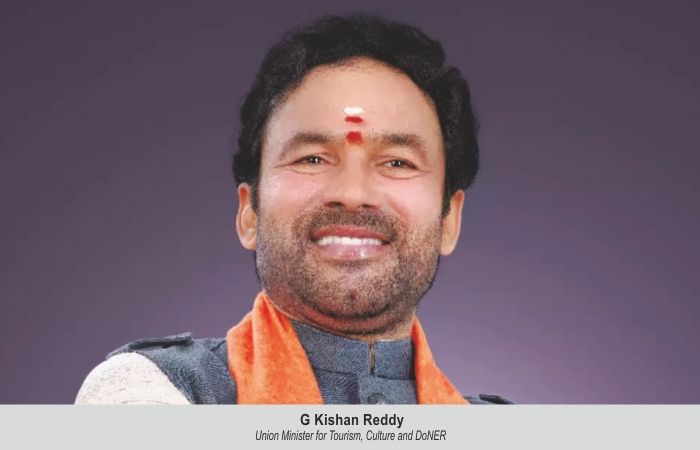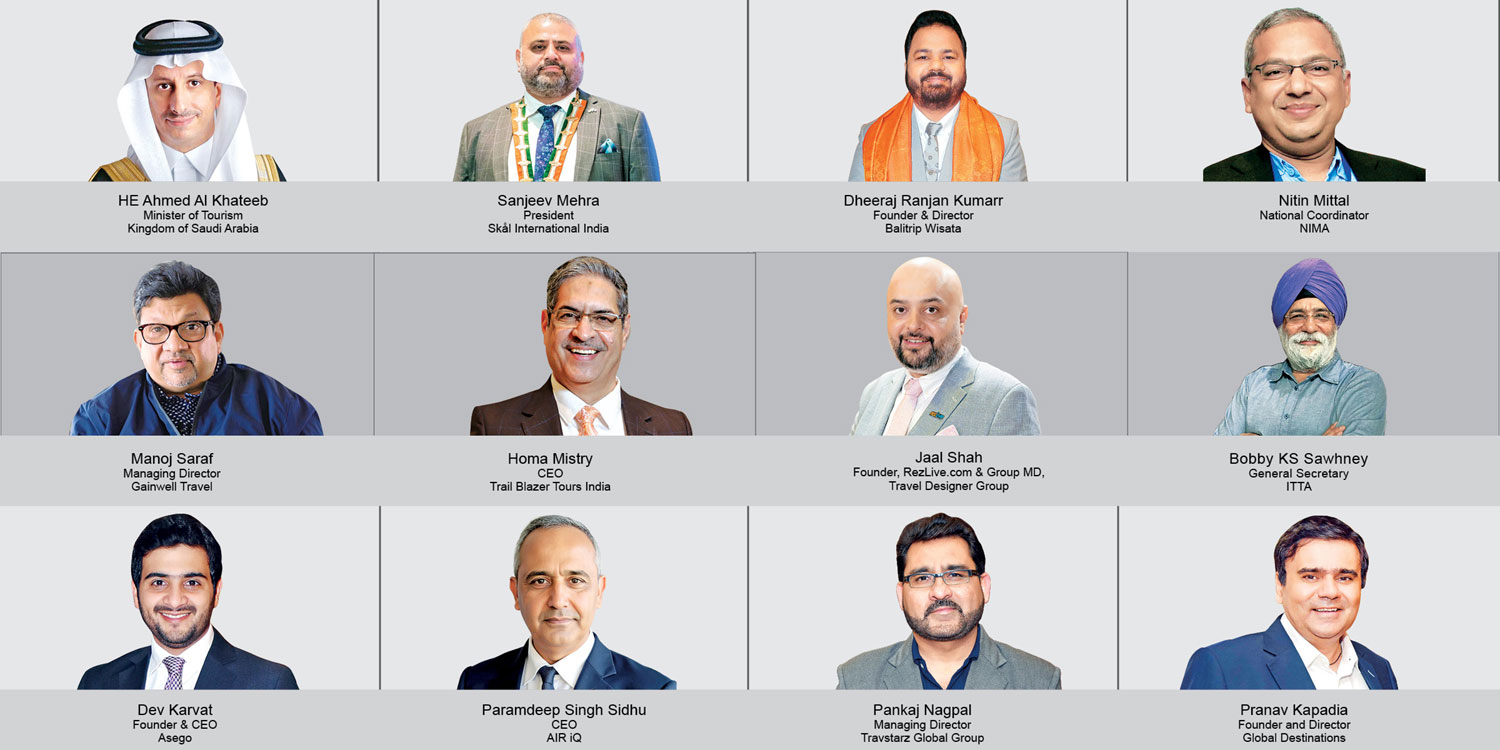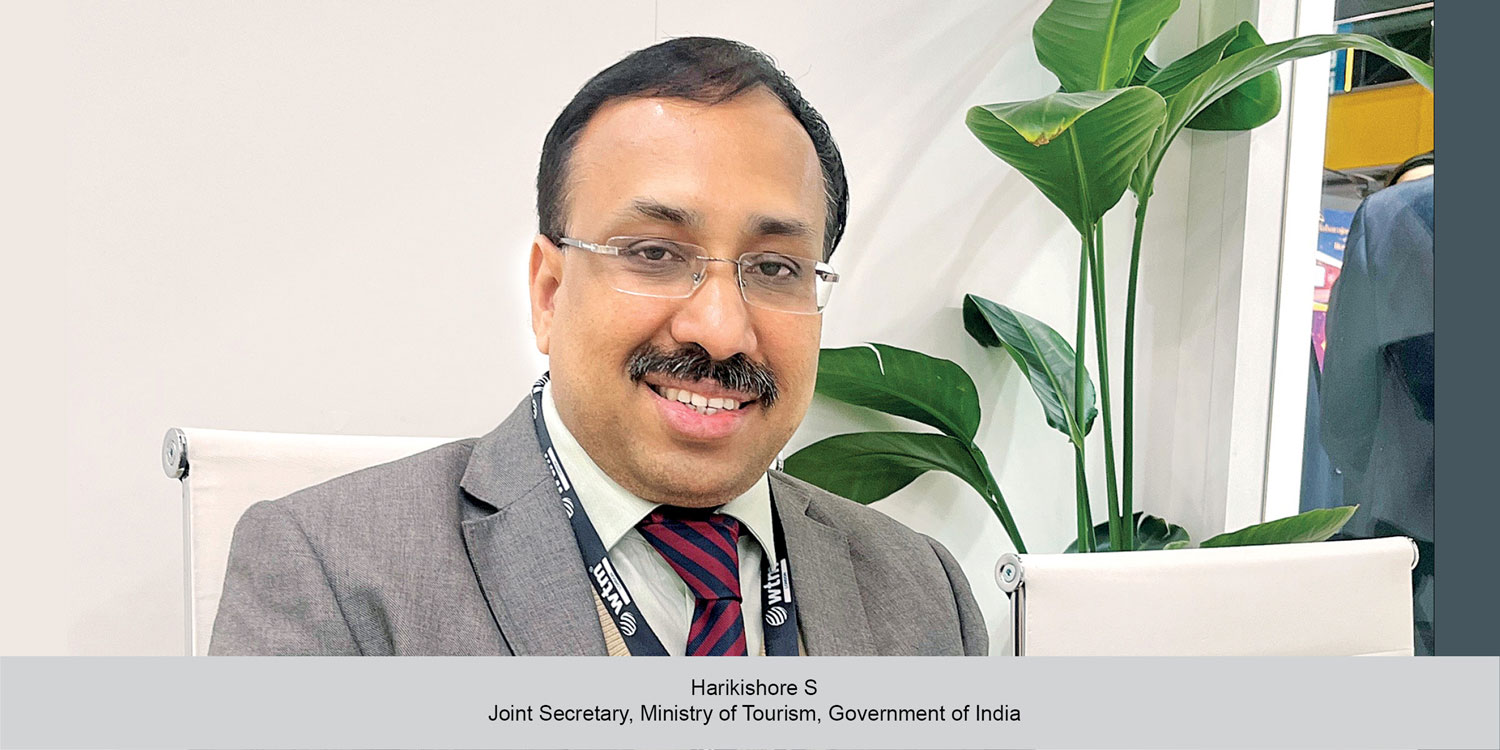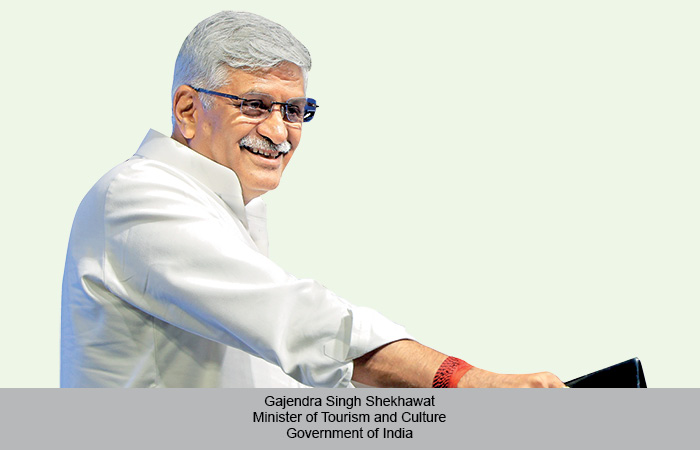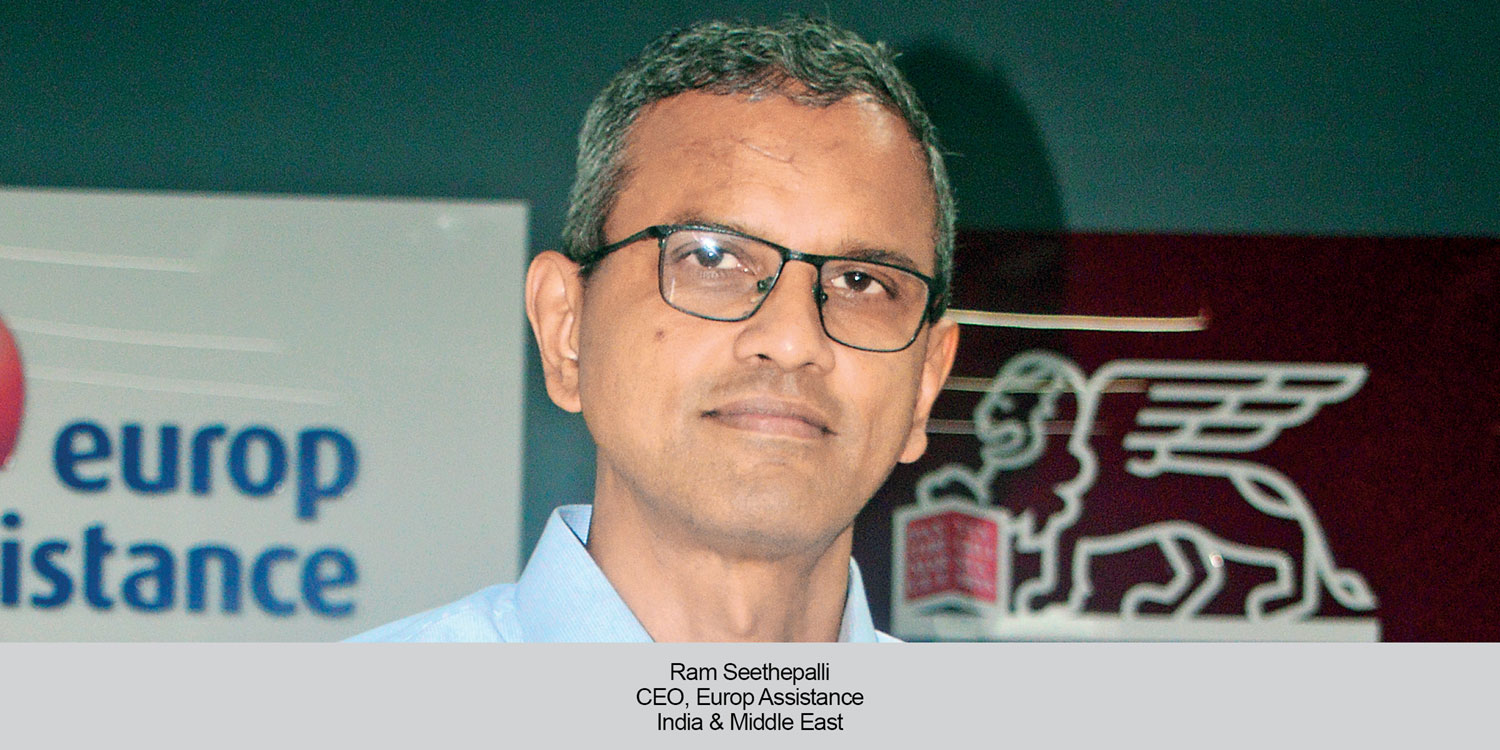The Goa Roadmap for Tourism will serve as a shared blueprint for G20 nations to achieve the 17 SDGs identified by the United Nations, said G Kishan Reddy, Union Minister for Tourism, Culture and DoNER, at the G20 Tourism Ministers’ Meet held in Goa soon after the 4th TWG Meeting.
Hazel Jain
The Tourism Ministers’ meeting, held in Goa recently, was graced by G Kishan Reddy, Union Minister for Tourism, Culture and DoNER, and Ministers of State Shripad Yesso Naik and Ajay Bhatt. Other dignitaries present at the meeting were ministers of G20 countries and delegates from G20 countries, invitee countries and international organisations. Reddy welcomed the Tourism Ministers and Head of Delegations from G20 member countries, guest countries, and international organisations.
PM inspires ministers
Prime Minister Narendra Modi gave a video message to the gathering, in which he said that the tourism ministers rarely get a chance to be tourists themselves, even though they are handling a sector worth over two trillion dollars globally. He said, “India during its G20 presidency is organizing nearly 200 meetings in 100 different locations all over the country making every experience different from the other. If you ask your friends who have already visited India for these meetings, I am sure that no two experiences will be alike.”
He added, “In India, our efforts in this sector are centred on preserving our rich heritage, and at the same time, creating world class infrastructure for tourism. One of our focus areas is developing spiritual tourism. After all, India attracts pilgrims of every major religion of the world. In the last nine years, we have placed special emphasis on developing the entire ecosystem of tourism in the country. From transport infrastructure, to the hospitality sector, to skill development, and even in our visa systems, we have kept the tourism sector as a focal point of our reforms. The hospitality sector has great potential for employment generation, social inclusion, and economic progress. It employs more women and youth compared to many other sectors. I am glad we are also recognising the relevance of tourism sector for speedy achievement of sustainable development goals.”
Commenting on TWG priority areas, he said, “You are working on five inter-connected priority areas of: Green Tourism, Digitalization, Skill Development, Tourism MSMEs, and Destination Management. These priorities reflect Indian as well as the Global South’s priorities. We should make greater use of emerging technologies like artificial intelligence and augmented reality to drive innovation. For example, in India, we are working on using artificial intelligence to enable real-time translation of the wide range of languages spoken in India. I believe that collaboration among governments, entrepreneurs, investors, and academia can accelerate such technology implementation in tourism. We should also work together to help our tourism companies increase their access to finance, ease business regulations, and invest in skill development.”
He said, “Terrorism divides, but tourism unites. Tourism has the potential to unite people from all walks of life, creating a harmonious society. I am happy to note that a G20 Tourism dashboard is being developed in partnership with UNWTO. It will bring together best practices, case studies and inspiring stories. It will be a first-of-its-kind platform and will be your enduring legacy.
I hope that your deliberations and the Goa Roadmap would multiply our collective efforts to realize tourism’s transformative power. The motto of India’s G20 Presidency, ”Vasudhaiva Kutumbakam” – One Earth, One Family, One Future – can itself be a motto for global tourism.”
TWG meetings a success
In his address, Reddy said, “We are all aware of the immense significance of the G20 and its role in global governance. The G20 brings together the world’s leading economies to address key challenges and promote sustainable, balanced, and inclusive growth. Through our collective efforts, we can harness the power of tourism to accelerate progress towards the SDGs, ensuring that no one is left behind.”
Pointing out the achievements of TWG meetings, the minister informed that there were extensive discussions on the five priorities of Green Tourism, Digitalization, Skill Development, Tourism MSMEs, and Destination Management. There were insightful presentations by G20 member countries, shedding light on their contributions to the five priority areas. “Both the outcome documents of G20 Working Group were welcomed. Travel for LiFE incorporated in the Goa Roadmap is based on our PM’s visionary initiative ‘Mission LiFE’ and urges individuals to act, to protect the environment against the effects of climate change. Travel for LiFE aims to nudge visitors and tourism businesses to adopt sustainable practices and contribute to the preservation of our natural and cultural heritage,” he shared.
Welcoming the Goa Roadmap, he commented, “We welcome the Goa Roadmap for Tourism as a vehicle for achieving the Sustainable Development Goals and reaffirm the pivotal role of the five key priority areas identified under India’s G20 Presidency for driving development, innovation, and cooperation in the tourism industry.”
PPP in focus
There was also a thematic discussion on the ‘Public private dialogue: Importance of travel and tourism to the G20 economies’ on the same day, which was addressed by Reddy in the presence of Julia Simpson, President and CEO of World Travel and Tourism Council (WTTC).
Reddy said, “Today, tourism has emerged as one of the fastest-growing economic sectors. We are all aware that tourism is a major source of employment, along with several socio-economic benefits such as trade, investment, infrastructure development and social inclusion. Tourism should become an investment magnet for both the private and public sectors and there is a need to innovate, explore new areas and craft new strategies to not only achieve pre-pandemic status, but also to rise beyond that. The private sector has a critical role to play in all the five priority areas.”
Zurab Pololikashvili, Secretary-General, UNWTO, said, “As tourism bounces back close to pre-pandemic levels, we must ensure that recovery is sustainable, inclusive and resilient. The Goa Roadmap for Tourism as a vehicle for achieving the SDGs offers the G20 economies a proposed plan of action to lead the way forward towards a better future for all.”
 TravTalk India Online Magazine
TravTalk India Online Magazine

